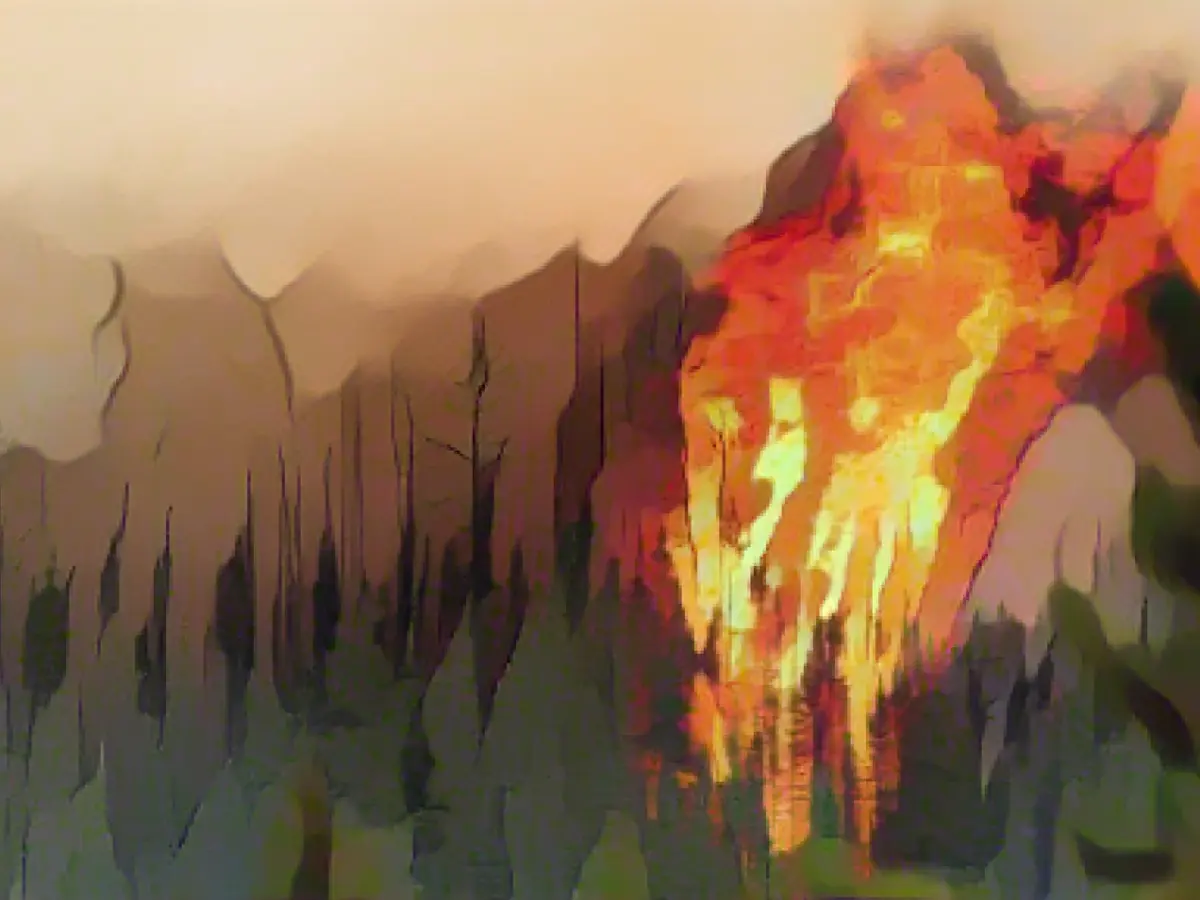Forest Fires in 2023: A Global Concern, Canada Takes the Lead
As we approach the tail end of the year, the global landscape has once again been scarred by the fury of forest fires. The situation was particularly severe in Canada, according to an analysis by the EU's Copernicus Atmospheric Monitoring Service (CAMS). These fires accounted for a staggering 23% of global carbon emissions from forest fires, as reported by Copernicus last Tuesday. In total, the fires released 480 megatons of CO2 into the atmosphere, with the global forest fires contributing 2100 megatons of CO2 emissions by December's start.
Canada's Record-Breaking Fires
This is a record-breaking year for Canada, with the country's forest fires almost five times the average of the past 20 years. The exceptional intensity, duration, and devastation caused by the fires in British Columbia, Alberta, Ontario, Nova Scotia, the Northwest Territories, and Quebec, set this record. The smoke from these fires had a severe impact on air quality, not only in the immediate vicinity but also in large parts of North America and beyond.
Comparatively Quiet Forest Fire Seasons Elsewhere
Despite the devastation in Canada, the USA and Russia reported relatively quiet forest fire seasons with CO2 emissions estimated to be below the average of the past 20 years. However, the fires on Maui, Hawaii, were particularly fierce, causing loss of life and severe damage to infrastructure. Both Russia and Kazakhstan experienced major forest fires in April and May.
Emissions from Forest Fires in Europe Rising
In the Mediterranean region, Greece was particularly affected by severe forest fires on Rhodes, the Greek-Turkish border, and other parts of Greece. Spain recorded the highest emissions for the month of March in 21 years due to fires at the border between Aragon and Valencia and in Asturias. The Canary Islands were also heavily affected by forest fires in August.
El Niño Weather Phenomenon Increases Risk of Forest Fires in Southern Hemisphere
According to Copernicus, the El Niño weather phenomenon has been increasing the risk of forest fires in the southern hemisphere, leading to significant wildfires in Chile and Argentina at the beginning of the year. The complexity of the links between climate change and forest fires was also noted in the report. While CO2 emissions from forest fires are not one of the main drivers of the increase in greenhouse gases in the atmosphere, higher temperatures and greenhouse gas levels make fires like those in Canada more likely.
Impact of Canadian Wildfires on Air Quality
The smoke from the wildfires in Canada had a significant impact on air quality not only in the immediate vicinity but also in large parts of North America and beyond. Large plumes of smoke had drifted across the Atlantic and clouded the skies in parts of Europe. "The impact of the wildfires on air quality in North America, and the fact that Europe has experienced hazy skies as a result of these fires, is a clear indication of their scale," said CAMS expert Mark Parrington.
In Conclusion
While the exact percentage of global forest fire emissions caused by Canadian wildfires is not provided, it is clear that these fires had a significant impact on air quality in North America and contributed to the global increase in forest fire emissions. The broader impact on European air quality is noted through the increasing frequency and intensity of wildfires across Europe, with 41% of the total burnt area in the EU affecting Natura 2000 networks and human lives being lost due to wildfires.
References: [1] Clean Air Fund. (n.d.). Global wildfires and vegetation fires in 2024. Retrieved from [2] European Environment Agency. (n.d.). Wildfires in Europe. Retrieved from [3] European Commission. (n.d.). Impact of climate change on European forests and wildfires. Retrieved from




